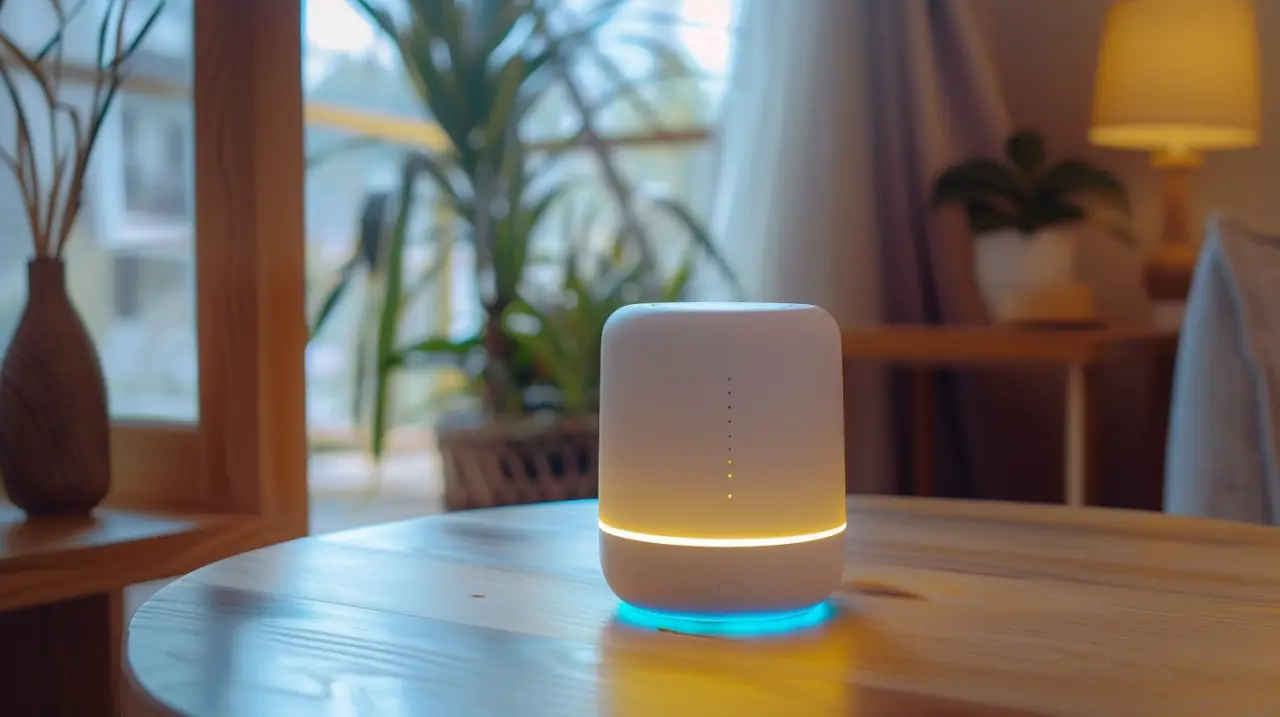Virtual Private Networks (VPNs) are a popular tool for ensuring online privacy and security. However, when using a VPN with Virgin Media, users may encounter problems with their internet connection. This article will delve into why this may occur and provide helpful tips and solutions to get you back online.
Virtual Private Networks (VPNs) offer an essential layer of online security and anonymity in an increasingly connected world. They protect your browsing activity, shield you from trackers, and let you access content that might be unavailable in your region. However, even the best VPNs aren’t a magic bullet, and some users may experience hiccups when pairing them with Virgin Media. This article aims to illuminate these potential compatibility quirks and provide clear guidance for a smooth and secure VPN experience with Virgin Media.
Navigating VPNs and Virgin Media
At first glance, using a VPN with Virgin Media should be simple. VPNs work by encrypting your data and masking your true location, effectively hiding your internet activity. However, specific factors within Virgin Media’s network infrastructure and some VPN configurations can introduce challenges. Our goal today is to demystify these issues and empower you to make the most of your VPN on Virgin Media’s network.
Understanding Why Problems Arise
Let’s start by clarifying the key reasons why you might experience trouble when using a VPN with Virgin Media:
- Router Compatibility: While many VPNs claim broad router support, some might struggle with the specifics of Virgin Media’s devices. Ensuring your chosen VPN explicitly supports Virgin Media is crucial.
- Web Safe Settings: Virgin Media’s ‘Web Safe’ feature, designed for improved security, can occasionally misinterpret and block VPN traffic.
- VPN Protocol Restrictions: Virgin Media may be selective in the VPN protocols it permits, necessitating specific configurations on your end.
The Path to Solutions
Fear not; addressing these potential stumbling blocks is possible! The remainder of this article will provide in-depth explanations and step-by-step instructions for:
- Choosing the right VPN for Virgin Media
- Configuring your router for optimal VPN use
- Utilizing router-level VPN for total network protection
- Troubleshooting tips if problems persist
VPN and Virgin Media: How it Works
A VPN works by encrypting your internet traffic and redirecting it through a server located in another location. This makes it difficult for third-party entities to access your online activity and helps protect your privacy. When using a VPN with Virgin Media, the VPN software connects to the Virgin Media router, which acts as the gateway to the internet.
Common Issues with Virgin Media and VPN Connections
There are several common issues that arise when using a VPN with Virgin Media, including:
- Connection problems: Some users may experience difficulty connecting to the internet while using a VPN. This can be caused by compatibility issues between the VPN software and the Virgin Media router or a misconfigured router.
- Slow internet speeds: When using a VPN, your internet speeds may be slower than when not using a VPN. This is due to the added encryption and data transfer overhead required by the VPN software.
- Network blocking: Some VPN providers may be blocked by Virgin Media, which can prevent users from accessing the internet while using a VPN.
Setting up a VPN on Virgin Media Router
When setting up a VPN on a Virgin Media router, there are some key steps to follow to ensure a successful connection:
- Choose a compatible VPN provider: Not all VPN providers work with Virgin Media, so it is essential to choose one that is compatible.
- Configure your Virgin Media router: Ensure your router is set up correctly to work with a VPN.
- Install the VPN software: Follow the instructions provided by your VPN provider to install the software on your device.
- Connect to the VPN server: Once the VPN software is installed, connect to the VPN server of your choice.
- Test your connection: Ensure that your connection to the VPN is stable and secure by performing a speed test and checking for any leaks.
Enabling Router-Level VPN on Virgin Media
You can enable router-level VPN on your Virgin Media router for an even more secure VPN connection. This will ensure that all devices connected to the router are protected by the VPN. To enable router-level VPN, follow these steps:
- Access the router settings: Use a web browser to access the settings page of your Virgin Media router.
- Enable VPN: Look for a VPN setting in the router settings and enable it.
- Configure the VPN connection: Enter the login credentials provided by your VPN provider to set up the VPN connection.
- Test the connection: Check that the VPN connection is stable and secure by performing a speed test and checking for any leaks.
By following these steps, you can ensure a secure and fast VPN connection with Virgin Media.
Troubleshooting Tips and Solutions
If you are experiencing issues when using a VPN with Virgin Media, there are several things you can try to resolve the problem:
- Check the compatibility of your VPN software and Virgin Media router. Some VPN providers may have specific compatibility requirements for different types of routers.
- Make sure your router is configured correctly. Check your router’s manual or support website for instructions on configuring it to work with a VPN.
- Try using a different VPN provider. Some VPN providers may be blocked by Virgin Media, so switching to another provider may resolve the issue.
- Disable the firewall on your Virgin Media router. Some firewalls may block VPN connections, so disabling the firewall may help resolve the issue.
- Contact Virgin Media customer support for assistance. They may be able to provide additional tips and solutions for resolving issues with VPN connections.
Tips for Improving VPN and Virgin Media
To improve your online security when using a VPN with Virgin Media, consider the following tips:
- Use a reputable VPN provider with a strict no-logging policy.
- Choose a VPN that uses strong encryption methods, such as AES-256.
- Regularly update your VPN software and router firmware to address any vulnerabilities.
- Follow recommended security practices, such as using strong passwords and avoiding public Wi-Fi.
- Overall, understanding the potential issues and taking steps to improve your online security can help ensure a safe and secure internet experience when using a VPN with Virgin Media.
Optimizing VPN Performance on Virgin Media Networks
For those navigating the intricacies of using a VPN with Virgin Media, achieving optimal performance is paramount. This entails not just overcoming hurdles like slow speeds and connectivity issues but also ensuring a seamless, secure browsing experience. Delve into advanced settings in both your VPN app and Virgin Media router to prioritize VPN traffic. This can involve adjusting the Quality of Service (QoS) settings to favor VPN packets or selecting servers that offer the best speed and reliability. Additionally, consider leveraging split tunneling features available in some VPNs to manage which applications use the VPN connection, thereby reducing bandwidth overhead and potentially increasing speed for critical tasks.
Leveraging Alternative Protocols for Better Compatibility
Compatibility challenges between VPN software and Virgin Media routers can often lead to frustration. One effective strategy to circumvent these issues is exploring alternative VPN protocols. Protocols like WireGuard®, OpenVPN, or IKEv2 have different characteristics in terms of speed, security, and firewall traversal capabilities. Experimenting with these can uncover the best fit for your Virgin Media connection, potentially bypassing blocks or restrictions and offering a more stable and faster VPN experience. Ensure your VPN provider supports multiple protocols and learn how to switch between them for the best results.
Enhancing Security with Advanced VPN Features
Beyond the fundamental privacy and security benefits of using a VPN with Virgin Media, advanced VPN features can provide an additional layer of protection. Features like kill switches, which automatically disconnect your internet if the VPN connection drops, ensure that your data remains secure at all times. DNS leak protection is another crucial feature, preventing your ISP from seeing your DNS queries. Engaging these features can fortify your online security, particularly when paired with Virgin Media’s broadband, known for its high speeds and broad coverage.
Understanding and Navigating Virgin Media’s Network Management Policies
Virgin Media’s network management policies can sometimes impact VPN performance, especially during peak hours. Being aware of these policies can help you navigate potential VPN issues more effectively. For instance, if you notice slower speeds during certain times of the day, it might be due to traffic shaping or throttling practices. In such cases, scheduling heavy downloads or streaming outside of these peak periods can improve your VPN experience. Additionally, staying informed about any changes to Virgin Media’s policies can help you adjust your VPN usage accordingly, ensuring that you maintain optimal performance and reliability.
By exploring these advanced strategies and considerations, users can enhance their VPN experience on Virgin Media networks, overcoming common obstacles to enjoy secure, fast, and reliable internet access. Whether it’s through optimizing VPN settings, choosing the right protocols, leveraging advanced security features, or understanding ISP policies, there’s a comprehensive approach to ensuring a smooth VPN experience with Virgin Media.
Conclusion
When using a VPN with Virgin Media, it is essential to understand the potential issues that may arise and take steps to resolve them. With the right setup and configuration, you can enjoy a secure and fast internet connection with the added benefits of a VPN.


